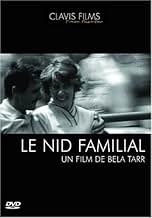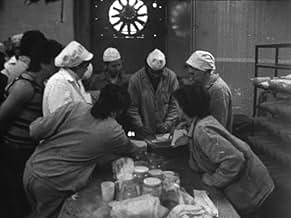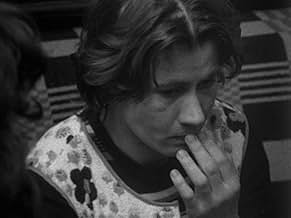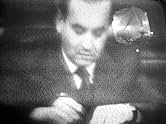VALUTAZIONE IMDb
7,2/10
1530
LA TUA VALUTAZIONE
Aggiungi una trama nella tua linguaThe breakdown of the relationship of a couple by living in a flat of the husband's parents.The breakdown of the relationship of a couple by living in a flat of the husband's parents.The breakdown of the relationship of a couple by living in a flat of the husband's parents.
- Regia
- Sceneggiatura
- Star
- Premi
- 1 vittoria in totale
Trama
Lo sapevi?
- QuizFilmed in six days.
- ConnessioniFeatured in Final Cut - Ladies and gentlemen (2012)
Recensione in evidenza
Családi tüzfészek (aka Family Nest) is an intimate portrayal of a family slowly disintegrating under various pressures in late 1970s communist Hungary. The plot of the film is deceptively simple, with the occasional momentous event--including one that's relatively shocking, but plot in a conventional sense is not the focus here.
What makes Family Nest so masterful is director writer/director Béla Tarr's skill at suggesting layers of emotion, commentary and meaning through cinematography and staging. For example, early in the film there is an extended scene of the family that is the film's focus eating dinner in their crowded apartment with some friends. Tarr has the camera crammed in a small room with the cast, necessitating that almost the entire scene is shot in close-ups. There are numerous conversations and an increasing amount of bickering occurring simultaneously. The viewer cannot escape a sense of claustrophobia and chaos. Later in the scene, Tarr trains his camera on the family's television, which is showing a news story about communism. There is irony between the ideological foundations necessary for communism and what we see occurring among just this one small group.
As the film progresses, Tarr treats us to many more ironies and juxtapositions, such as the overbearing father's distorted view of his sons versus their "true nature", a carnival versus addiction and sickness, and the futility of government housing policy versus the practical requirements for keeping a husband and wife together.
Some scenes--and especially the final two shots, last far longer than many viewers will be accustomed to, but through such unusual techniques, Tarr manages to "dig in" to emotional and dramatic spaces that could not otherwise be reached. Like much of his work, it suggests a reconceptualization of what cinema can do and how it can do it.
What makes Family Nest so masterful is director writer/director Béla Tarr's skill at suggesting layers of emotion, commentary and meaning through cinematography and staging. For example, early in the film there is an extended scene of the family that is the film's focus eating dinner in their crowded apartment with some friends. Tarr has the camera crammed in a small room with the cast, necessitating that almost the entire scene is shot in close-ups. There are numerous conversations and an increasing amount of bickering occurring simultaneously. The viewer cannot escape a sense of claustrophobia and chaos. Later in the scene, Tarr trains his camera on the family's television, which is showing a news story about communism. There is irony between the ideological foundations necessary for communism and what we see occurring among just this one small group.
As the film progresses, Tarr treats us to many more ironies and juxtapositions, such as the overbearing father's distorted view of his sons versus their "true nature", a carnival versus addiction and sickness, and the futility of government housing policy versus the practical requirements for keeping a husband and wife together.
Some scenes--and especially the final two shots, last far longer than many viewers will be accustomed to, but through such unusual techniques, Tarr manages to "dig in" to emotional and dramatic spaces that could not otherwise be reached. Like much of his work, it suggests a reconceptualization of what cinema can do and how it can do it.
- BrandtSponseller
- 3 apr 2008
- Permalink
I più visti
Accedi per valutare e creare un elenco di titoli salvati per ottenere consigli personalizzati
Dettagli
- Tempo di esecuzione1 ora 48 minuti
- Colore
- Mix di suoni
- Proporzioni
- 1.37 : 1
Contribuisci a questa pagina
Suggerisci una modifica o aggiungi i contenuti mancanti

Divario superiore
By what name was Nido familiare (1979) officially released in Canada in English?
Rispondi


















